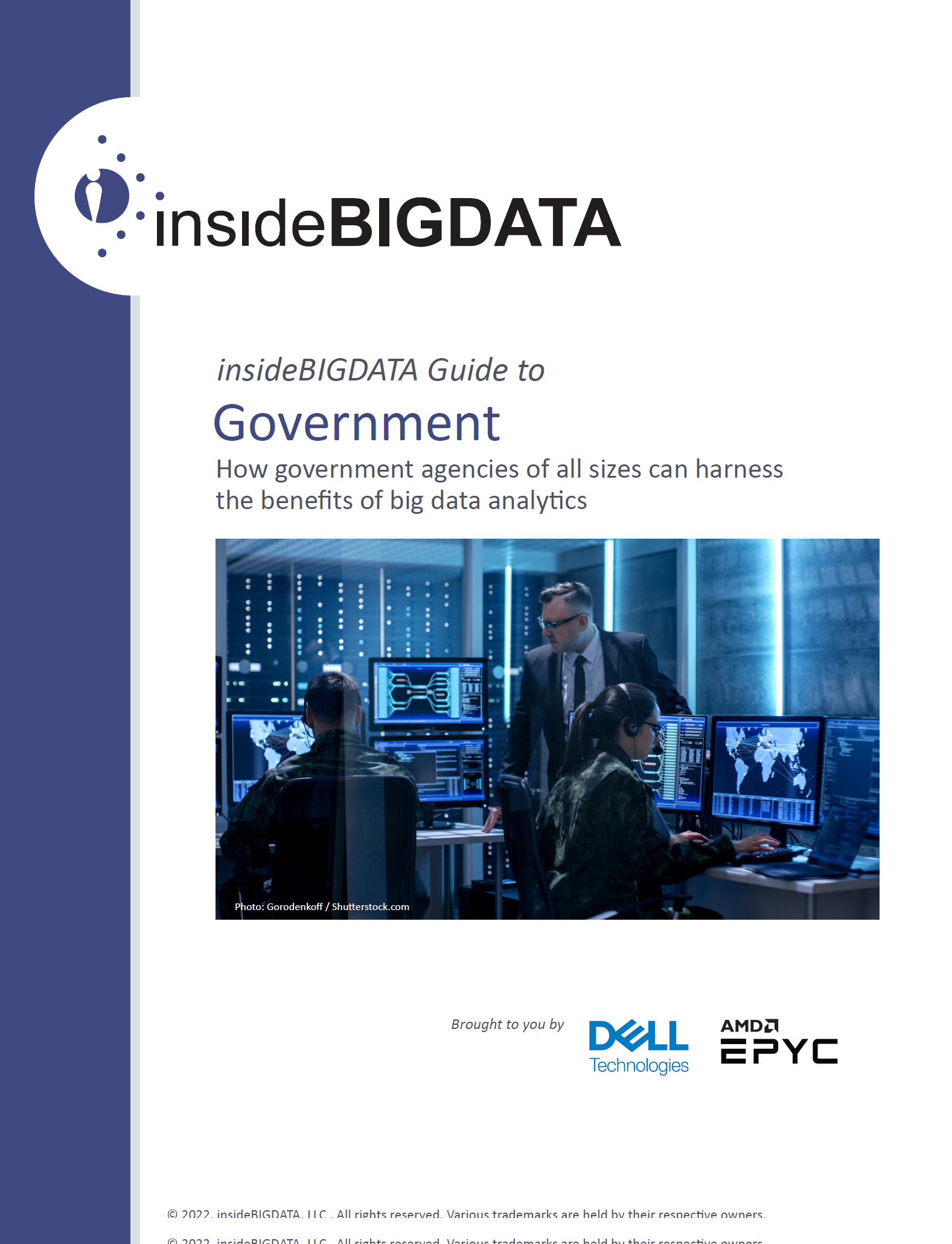Sponsored Post
Benefits of big data analytics for government
When governments conduct analytics on their data, the tangible benefits can be wide- ranging: less crime, fewer traffic jams, faster postal services, smarter defense systems, better targeted social programs. The list could go on and on. But if you group them together, a list of five key categories emerges:
1. Financial benefits
The financial impact of big data analytics has been well studied by a number of researchers. In an article titled “Accelerating Data and Analytics Transformation in the Public Sector,” McKinsey & Company estimates “Analytics could create value worth between $9.5 trillion and $15.4 trillion a year if embedded at scale—and $1.2 trillion of that in the public and social sectors.”
Where does that $1.2 trillion come from? In “The trillion-dollar prize: Plugging government revenue leaks with advanced analytics,” the same firm writes, “Our analysis suggests that close to 20% of government revenues worldwide, or about $5 trillion, go missing each year, either in dollars owed but never paid or in outbound payments gone awry.” It continues, “Our experience in both the private and public sectors suggests that governments can capture about 20 percent of the leakage over several years of concentrated effort. Worldwide, that represents a trillion-dollar opportunity.”
On a smaller scale, the World Bank reports, “The UK’s Digital Government Unit estimates the country’s government can save around US$20-41 billion annually through big data analytics—a figure based on efficiency gains, reduced fraud and error, and improved tax collection alone.”
And importantly, government big data analytics projects generally generate much more than they cost. in “The Case for Government Investment in Analytics”, Jane Wiseman of Harvard’s Ash Center writes, “Few government data teams have the resources to document their value, but those that do can show as much as eight- to-one return on their cost.”
That kind of returns can be a powerful incentive for public agencies to invest in big data analytics.

2. Proactive prevention of problems
In addition, big data analytics can move governments from a reactive posture to a preventive posture. This is particularly true with the growing areas of predictive and prescriptive analytics.
Predictive analytics uses historical data and advanced techniques (often including machine learning) to model what is likely to happen in the future. Prescriptive analytics goes a step farther, telling analysts not only what is likely to happen but also recommending actions that are likely to have a desired outcome. As researchers from Deloitte note, “From spotting fraud to combating the opioid epidemic, an ounce of prevention really is worth a pound of cure—especially in government. Predictive analytics is now being applied in a wide range of areas including defense, security, health care, and human services, among others.”
3. More effective organizations
Even more significantly, big data analytics can help public entities do a better job of fulfilling their missions, no matter what those missions might be. From public health to environmental protection, education, transportation, defense, tax collection, and many others—nearly every governmental role could be improved through data analytics. And as organizations scale up their analytics efforts over time, the effectiveness benefits grow at a similar or even greater rate.
4. More efficient service delivery
Not only do analytics make agencies better at their jobs, they also makes them more efficient at doing their jobs. And from the point of view of constituents, these are often some of the most visible and appreciated benefits of big data analytics. For example, the insights from analytics projects might reveal ways to speed up the services provided by the Department of Motor Vehicles, reducing the amount of time that citizens must spend waiting in line. It might also be able to speed up other public-facing activities like permitting, licensing, even the court system.
5. Improved faith in government
The combination of more effective and more efficient government can have a huge effect on public opinion. And with public trust in government extremely low in many parts of the world, this benefit can be significant for society as a whole. This becomes even more pronounced when paired with open data initiatives that make more data publicly available. As Wiseman explains, “Public faith in government may improve when saving time and money is paired with increased transparency and accountability.”
Over the next few weeks we’ll explore these topics:
- Introduction; Government roles in big data
- Benefits of big data analytics for government
- 15 things your organization can do to improve your use of big data analytics; Choosing the right infrastructure for big data
Download the complete insideAI News Guide to Government technology guide courtesy of Dell Technologies and AMD.




